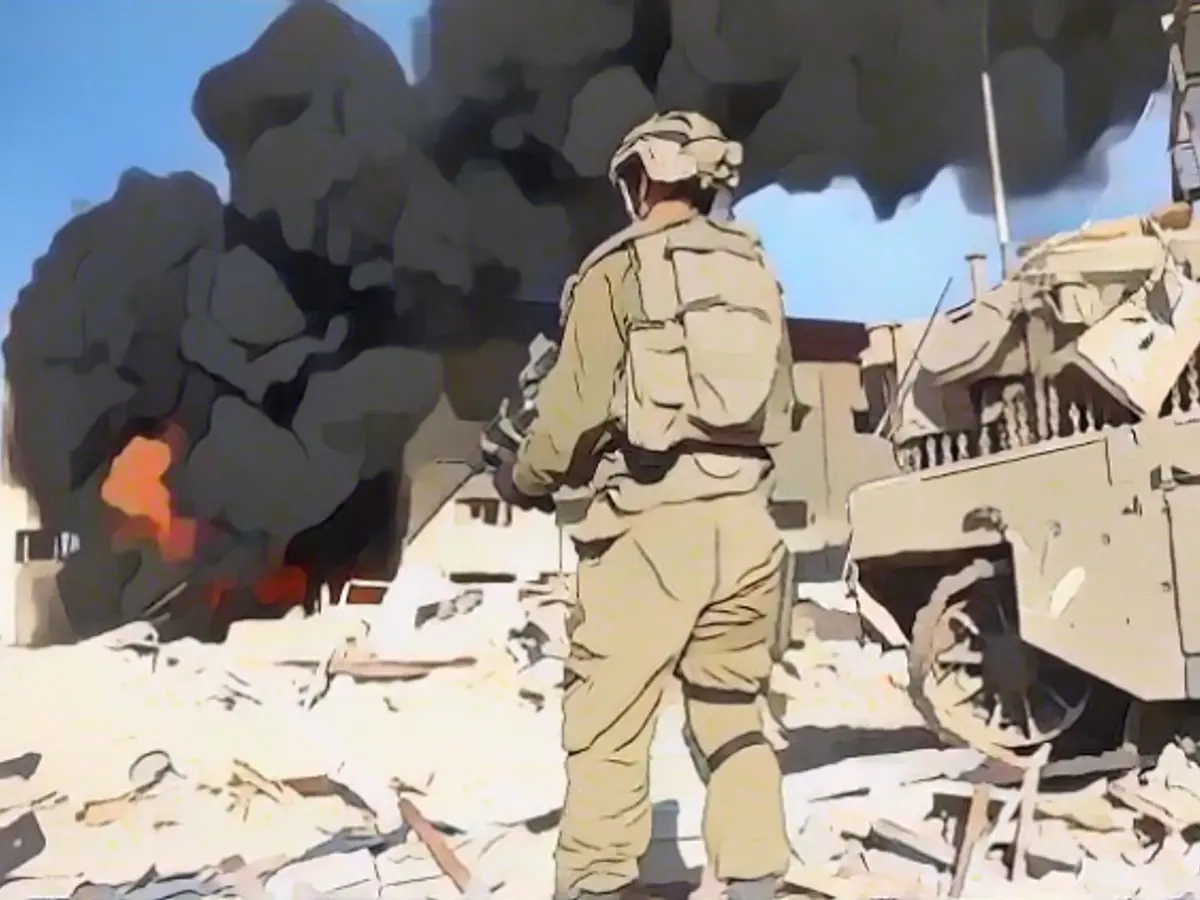Criticisms abound as Israel faces international scrutiny over its military actions during Gaza conflict
Pro-Israel international law expert Matthias Herdegen stands firm in his belief that Israel shouldn't be held accountable for Hamas's entrenchment behind defenceless civilians in illegal territories. Despite the heavy civilian casualties on the Palestinian side, Herdegen, a legal scholar hailing from Germany, asserts that international law does not require the defending party to limit combat operations to such an extent that their losses don't outweigh the lives lost in their own country. This stance has sparked heated debates, with some contending that it undermines the very concept of self-defense, especially when it comes to parties within the conflict that resort to targeting their own population.
Ablaze with criticism
Herdegen, the director of the Institute for International Law in Bonn, isn't shy about his opinions. In a heated exchange with German broadcaster Redaktionsnetzwerk Deutschland, he defended Israel's military operations in the Gaza Strip. The Israeli armed forces are under intense scrutiny for their actions during this conflict, with allegations of serious violations on both sides. Yet, Herdegen sees a clear distinction - applications of international law indicate serious shortcomings on the part of Hamas.
Weapons caches and prohibited construction sites
According to Herdegen, Hamas is in violation of international humanitarian law by setting up weapons caches under clinics, residential buildings, and schools in the Gaza Strip. By storing weapons in these locations, Hamas subjects health facilities to an unacceptable level of risk and threat, making them legitimate targets in a conflict statue, should the need arise.
Hamas's aggressive politicking and its tendency to manipulate its civilian population for strategic gain has attracted condemnation from many nations and international organizations. The organization's decision to build tunnels under hospitals in the Gaza Strip, which allegedly house Hamas headquarters, is not only a galvanizing factor for international criticism but also a clear violation of the Geneva Conventions.
The Al-Shaifa hospital tragedy
Recent days have seen the Israeli army storm the Al-Shaifa hospital in the Gaza Strip, sparking a wave of outcry. Massive Israeli attacks on targets in the region have resulted in over 12,000 lives lost, according to Hamas - claims that are difficult to independently verify. Israel argues that the headquarters of the radical Palestinian Islamic organization Hamas, which is classified as a terrorist entity by both the USA and EU, lie within these tunnels.
This accusation, in turn, sparks heated debates regarding the legitimacy of such military operations. When criticism for these actions intensifies, international legal experts like Matthias Herdegen come forward to counterbalance the negative sentiment, offering the Israeli position on issues like the right to self-defense, the necessity and proportionality of using force, and the obligation of the attacking party to protect its own army and civilians.
Enrichment insights:
- Israel's right to defend itself against armed attacks under the UN Charter (Article 51) is a foundational tenet of international law.
- The Geneva Conventions and their additional protocols prohibit hostage-taking, and Hamas has committed numerous, egregious humanitarian law breaches by conducting such acts.
- The Responsibility to Protect (R2P) doctrine suggests that states have a duty to protect their citizens from harm and to prevent humanitarian crises. Israel's actions can be interpreted alongside R2P, as they are aimed at halting Hamas's violent acts and protecting civilians.
- Legal scholars argue that Hamas leaders and personnel are liable for genocide, crimes against humanity, and war crimes due to their role in committing atrocities against civilians.
- The use of force by Israel must be proportionate and necessary to address the threat posed by Hamas and to rescue hostages. This is a fundamental requirement of international law and ensures that military operations are ethically sound.








